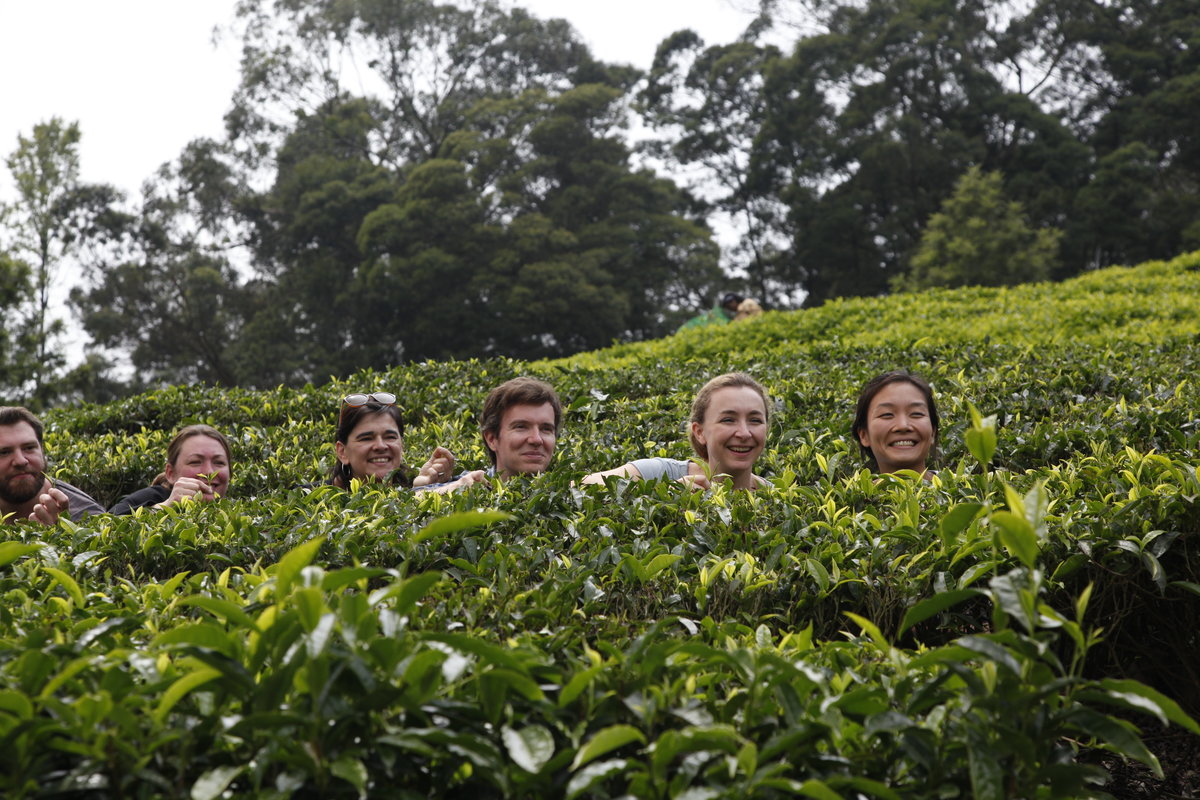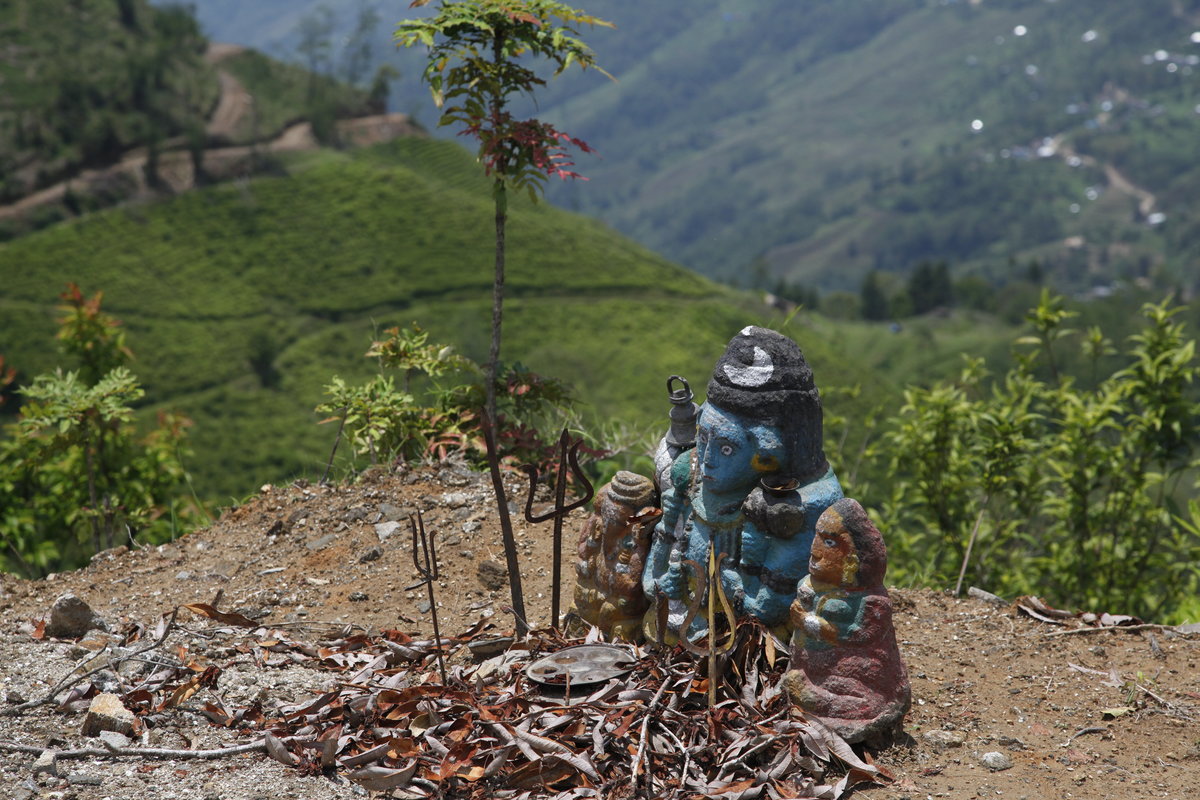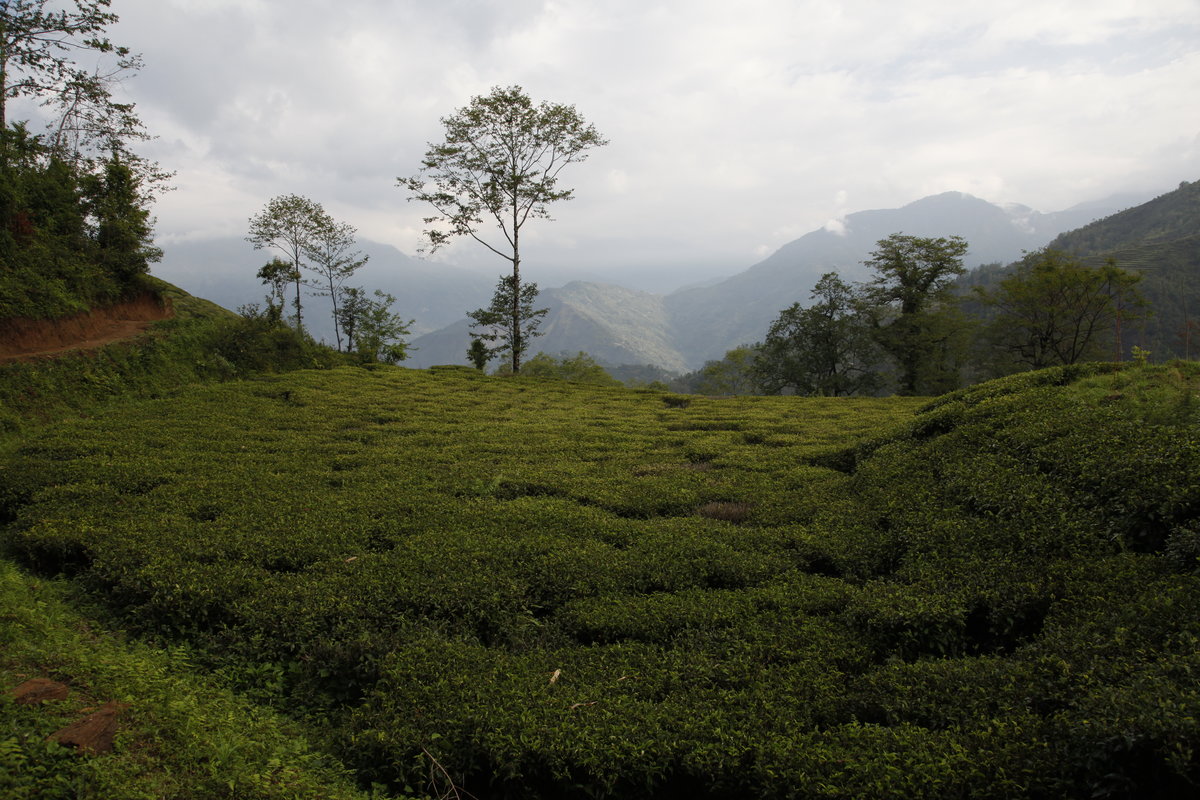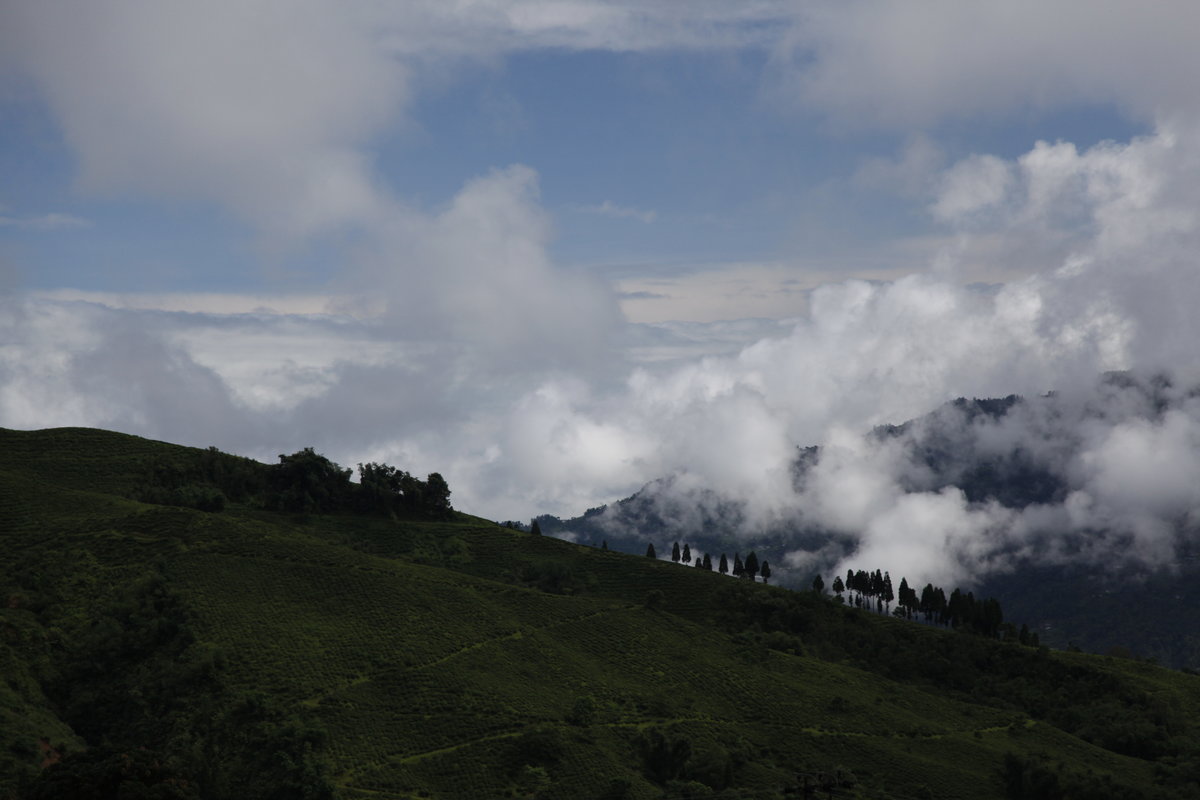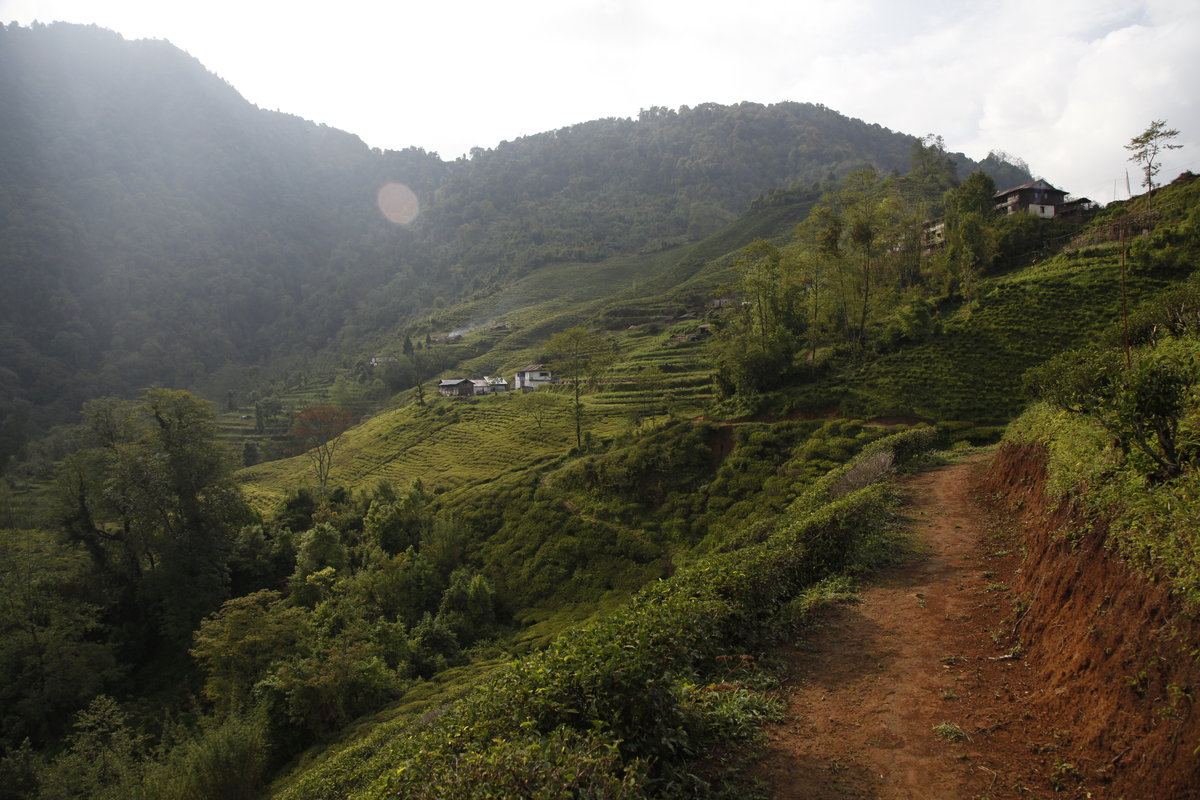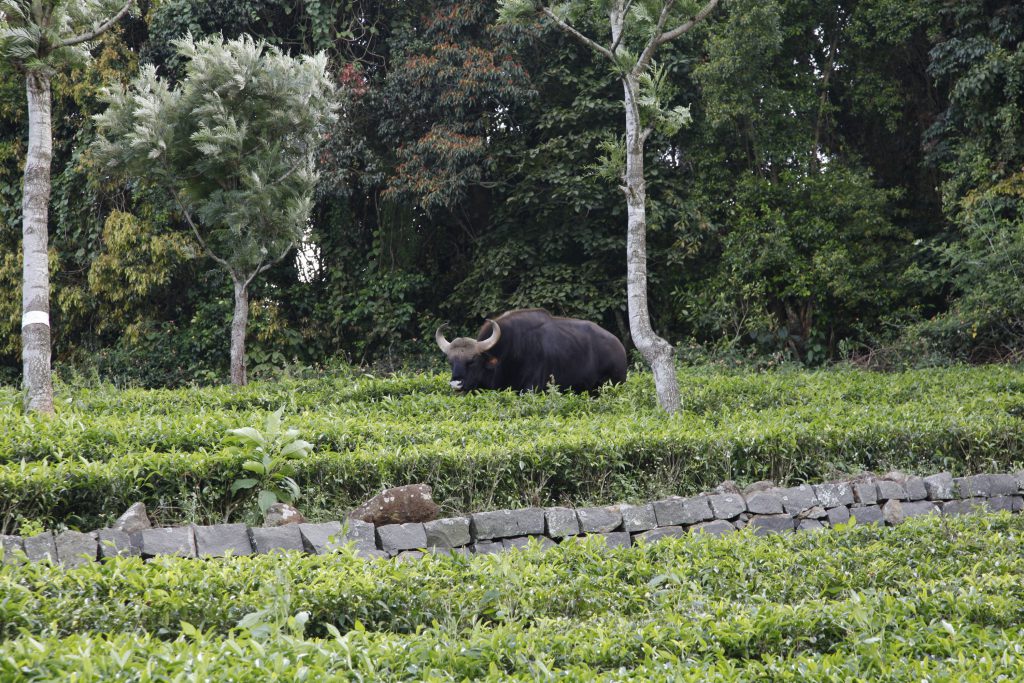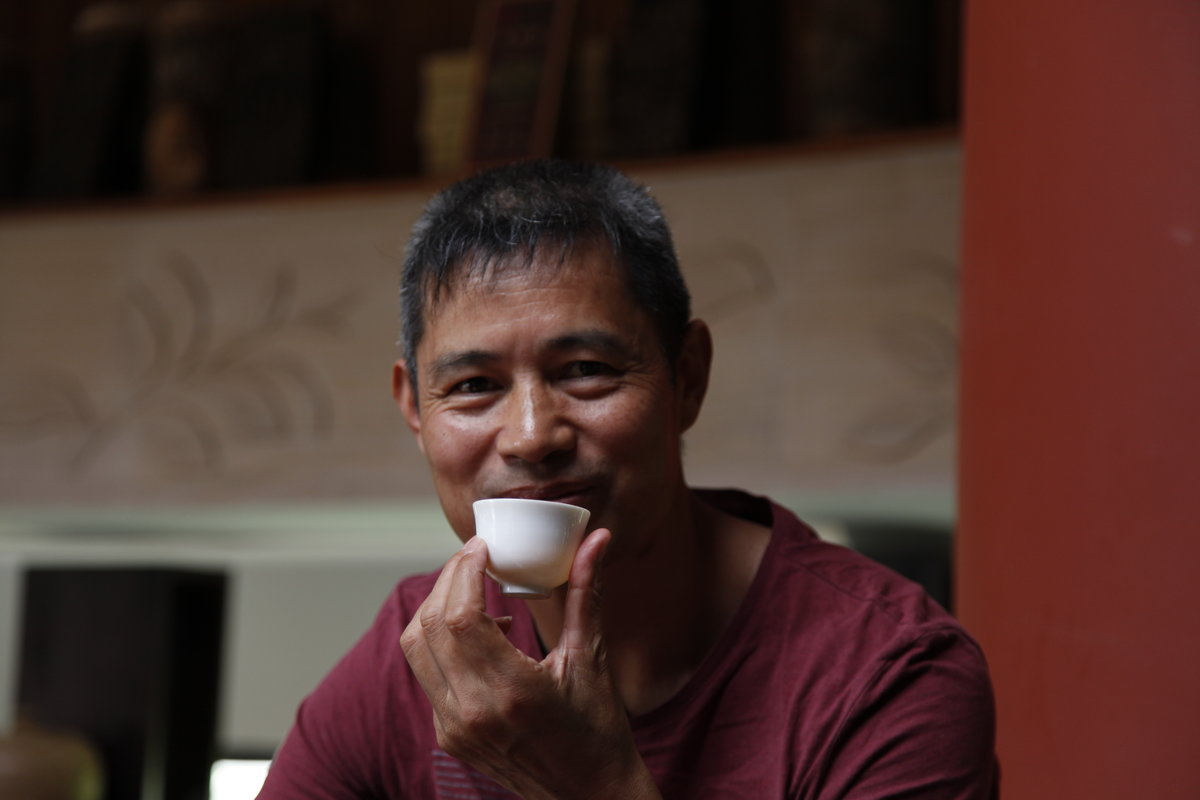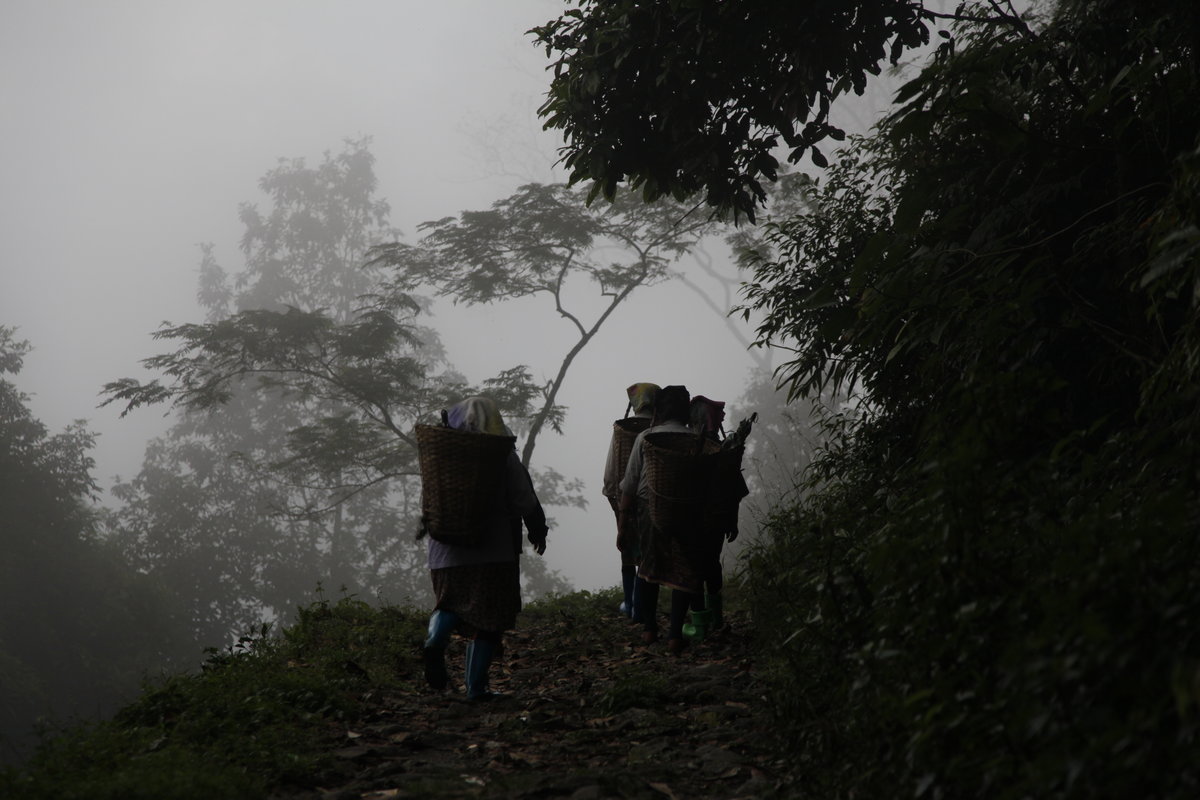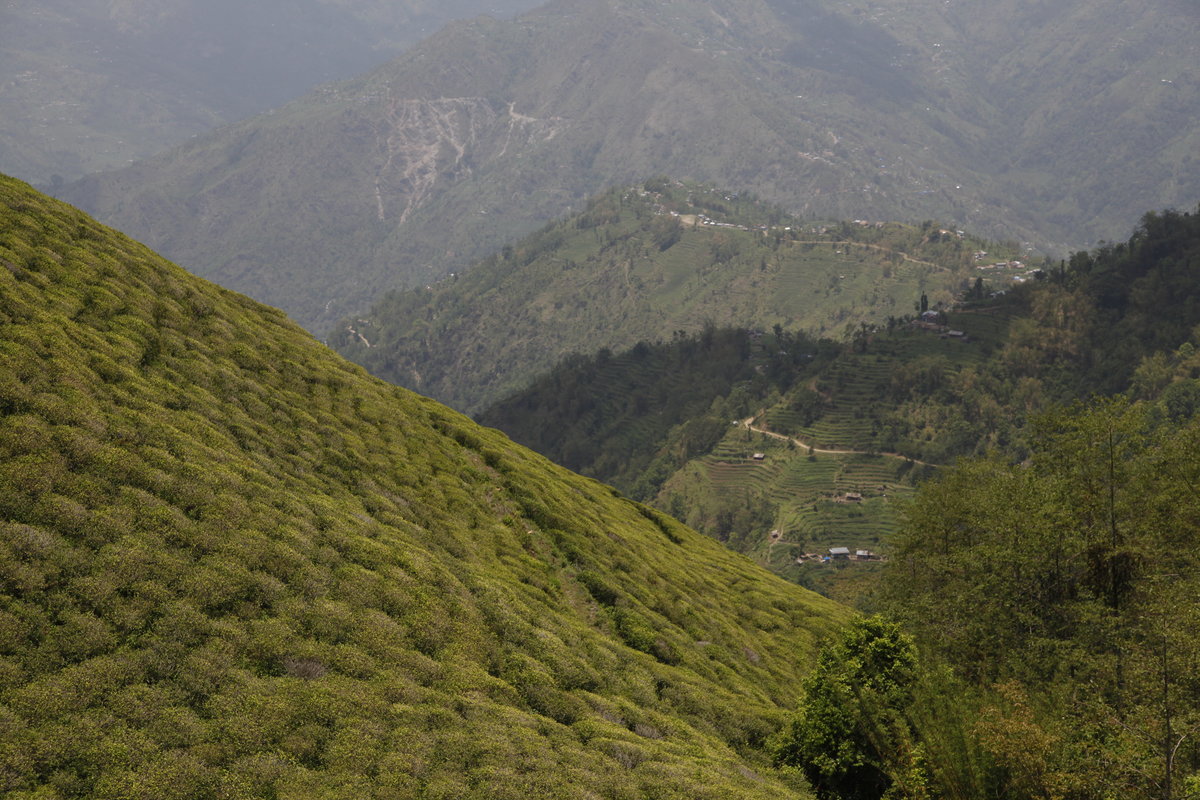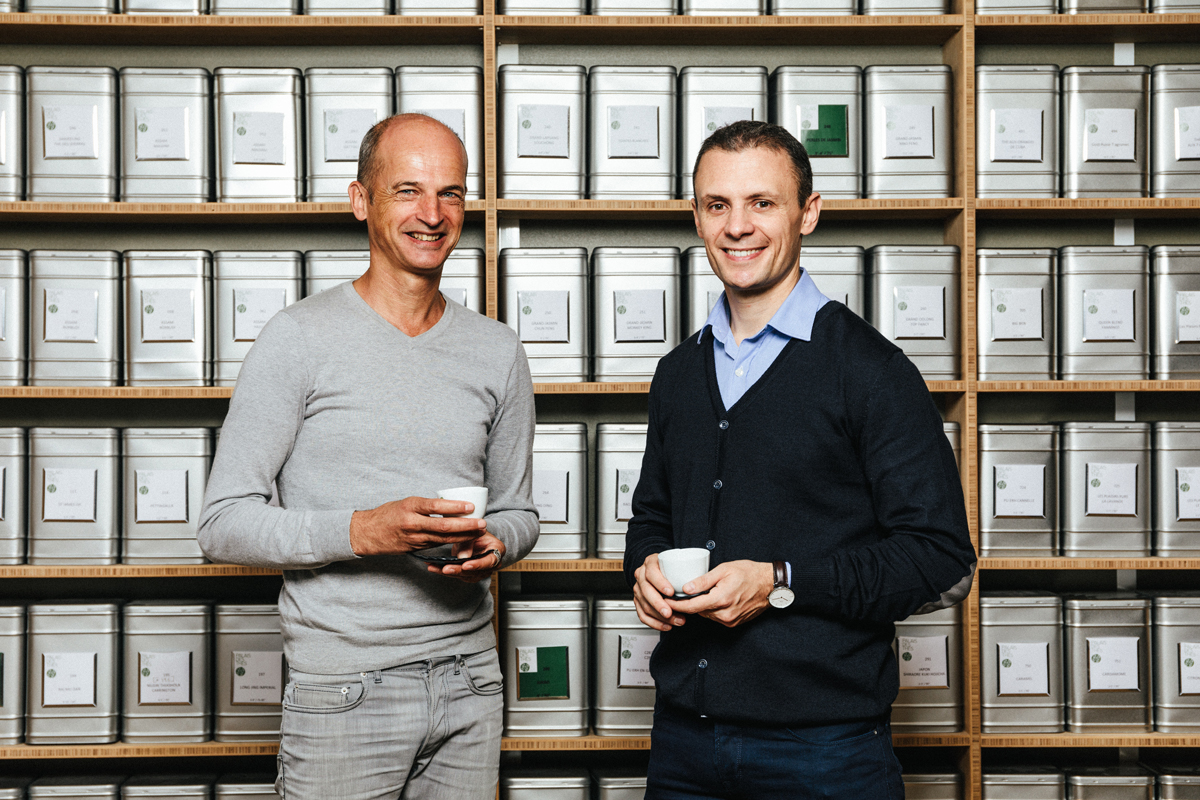In this blog, which is celebrating its seventh year, I love to talk about the work I’ve been doing for more than 30 years; my job is my passion. Part of the joy comes from sharing it in situ with my colleagues at Palais des Thés and showing them what I do every day. They accompany me on tours around the tea fields and I share with them the time I spend with farmers and planters, which is so important in my view, learning about every aspect of their work and their life. Here, from left to right, are Benoît (poor framing on my part has deprived him of his right ear), Audrey, Sylvie, Frédéric, Constance and Linda, who don’t look unhappy to be on the trip.
ARCHIVE FOR 2017
This is Shiva
Divinities differ from country to country, and while some people are celebrating Christmas, on other continents they worship Shiva, or pray to Allah, or follow the words of Buddha. Through my work I’m lucky to come across people from different cultures and religions, and I love this variety. Happily, we don’t all think the same way yet; our customs and rituals change and we speak different languages depending on where we’re born, and I hope this continues as long as the world exists. It makes travel more interesting. Some people follow a religion, others don’t – although the latter are rare in the parts of Asia and Africa I visit. Among them, I find a multitude of different rites. People pray before a wall, from a pulpit, at the foot of a minaret, or around a stupa. They pray to the wind or fire, they place offerings at the foot of simple statuettes. Whoever or whatever you pray to, and even if you don’t pray at all, I wish you all happy holidays!
In silence
I like silence. I hate it when people make noise for no reason. I don’t have a television. I don’t see the point of listening to music constantly. I’ve noticed that many people are afraid of silence. They go around with headphones on, they talk even when no-one is listening, their thumb constantly swipes their phone screen. They are filling a void that feels threatening. But what is there to be afraid of? I’m happy with silence. I’m happy surrounded by nature, away from human noise. It’s the same with photos. A good photo needs no commentary. No noise. You can just look at it.
Darjeeling facts and figures
During a recent stay in Ilam Valley, I took the opportunity to meet several Darjeeling planters, and talked with them at length about the situation in the district. This is the latest news I can bring you, as well as a few figures to help you understand. In 2017, 80% of the Darjeeling harvest was lost. Ninety percent of the autumn harvest alone was lost. The separatist leader is now in hiding, and 105 days of strikes have resulted in no concrete gains for the population. They don’t know who will pay for the massive financial losses suffered by the tea plantations, of course, but also by everyone whose business relates to tourism. Then there are the shop-keepers who had to remain closed for more than three months. Throughout this stand-off between the autonomists and the government of Western Bengal, many people who were living in the mountains left to find work elsewhere. Now, 30% of this population have gone, and we don’t know if they will return. And most people who live in the mountains work in the tea fields. Despite this set-back, the herbs that had grown over the tea plants have been pulled up. There’s still a lot of work to do to cut back the bushes, though. Normally they are cut back every four or five years, but this winter, because the plants were left to grow for three months, they must be cut back to form what’s known as the plucking table. This winter pruning will delay next spring’s Darjeelings, which are usually harvested from the beginning of March. Darjeeling’s planters are unanimous in their view that there won’t be any teas in 2018 before around 20th March, and even then, only a few. The harvesting period will be shorter, the quantities smaller, and the prices higher. Another subject all our planters agree on is that if the separatists go on strike again, they will allow the tea plantations to operate normally so that people don’t suffer any more than they have to.
Remember to be happy
A few days ago, while walking in a remote part of Nepal on a track that winds through hamlets and tea fields, I remembered my first trip to this country a little over ten years ago. I remembered the curfew, the war, the ban on driving at night, the fearful army who pulled your vehicle off the road, made you get out and pointed an automatic weapon at you. I remembered the Maoists who held villagers to ransom, who took their belongings if they couldn’t pay their taxes, and sometimes even one of their sons. I remembered stories of executions, a father or mother in tears. I remembered all this pain, and now, on this little path surrounded by glorious nature, I thought that sometimes we forget to be happy, we forget to see the good things. It’s easy to spend your life lamenting, as if everything was so much better before, as if everything is going to ruins, when sometimes the world is improving. It’s a shame not to think about this, to forget to be happy. So I stopped walking, looked all around me at the incredible landscape in this peaceful country that has put war behind it. I took my time to appreciate it and to feel thankful. Sometimes the world is beautiful.
The gaur: an effective weeder
On the tea plantations, I come up against a variety of creatures: charming ladybirds, stunning dragonflies, beautiful butterflies, spiders of all sorts, some harmless, others not, tarantulas, leeches, passerines, birds of prey, rodents, worms, mongooses, snakes as long as my arm, including cobras, roe deer and much more. I only meet the Indian bison – the gaur – in Southern India. They are incredibly powerful. It takes several tigers, still present in this region, to bring one down. Gaurs walk quite daintily among the tea plants. While they don’t eat the leaves of these shrubs, they do munch on all the undesirable plants that grow between rows. It’s a good way to keep the weeds down.
Who is Mr Tian?
Wen Rong Tian has had two lives: the first as a physical education teacher; the second, which began 27 years ago, as a tea producer. From the first he has kept his love of a healthy life, and follows a daily programme of vigorous exercise and a strict diet. The second came from his father, who managed a tea factory for 20 years. However, son has surpassed father: today, Wen Rong Tian is one of the main, if not the leading, producer of black tea in Yunnan. He makes excellent teas and even claims to have created the famous Yunnan Golden Buds and Golden Needle teas produced in the province. I visited him near Baoshan, where he lives. His passion lies not so much with walking though tea fields as spending all his time tasting his teas and improving production processes. He lives, sleeps, eats and breathes just a few metres from his factory. What gives him the most pride is to make some of the most amazing teas in the world, just from simple leaves. And unlike many Chinese producers, he prefers black teas to green teas, for their generous aromas and smooth presence.
Darjeeling lacks a workforce
Darjeeling is a place of contrasts right now. Life has resumed throughout the district. Once again, the roads, shops and hotels are open, the tea plantations too. But there is much work to be done, as the tea plants have disappeared beneath the weeds. This is not serious for the shrubs, they’re in good conditions, but all the vegetation needs clearing, and then the precious camellia sinensis must be cut back to their initial size. Sadly, there is a lack of manpower in Darjeeling. During the three months of protests in favour of regional autonomy, many men left the mountains to find work elsewhere. And now, the plantations don’t have enough people to do the clearing and cutting back. Yet this work is essential if there is to be a good harvest next spring, otherwise there won’t be enough Darjeeling tea, and fake Darjeelings, which are already in circulation, will flood the market. That would be a catastrophe for Darjeeling, and I hope with all my heart it will never come to that. We will have to pay close attention to the situation.
Growing tea: essential conditions
During a tour of the Institute of Himalayan Bioresource Technology, Dr Rakesh Kumar reminded those I’d brought with me on the trip of the essential conditions required to grow tea: acidic soil (pH 4.5 to 5.5), temperatures between 15°C and 32°C, and abundant rainfall (around 1,500 mm per year). Of course, altitude, sunlight and gradient also influence the way the plants behave.
I’ve chosen this photo to illustrate gradient. It is without doubt in the Himalayan foothills that I encounter the steepest mountainsides. With copious rainfall and well-drained soil, it’s a tea plant’s dream location!
Tea tasting with Manuel, “Meilleur Sommelier de France”
Named “Meilleur Sommelier de France” (“Best Sommelier of France”), Manuel Peyrondet is also interested in tea. He came to taste some premium teas with me, prepared at room temperature, meaning they were steeped for exactly an hour in water at 20°C. We talked about tea and food pairings, accompanied by Vanessa Zochetti, who was interviewing us for the next issue of Bruits de Palais. Tasting tea with a sommelier, especially Manuel, who used to be a sommelier at the Hotel George V, as well as the head sommelier at Taillevent, then at the Royal-Monceau, is a unique experience. In the world of fine food and drink, we often live in our bubble, focusing on our specialist product: wine for Manuel, tea for me. It’s really strange to move outside this world, to focus on how we respond to different textures, aromas and flavours. It leads to particularly enriching discussions.
And for those who don’t just drink tea, Manuel runs a wine club, which is an excellent way to build up a collection and attend tastings: www.chaisdoeuvre.com
(photo: Emmanuel Fradin)

